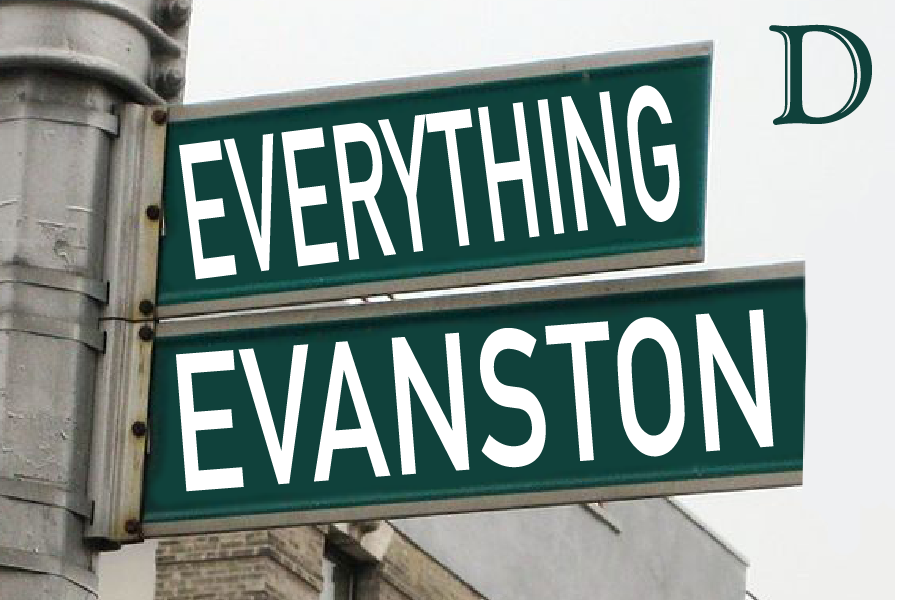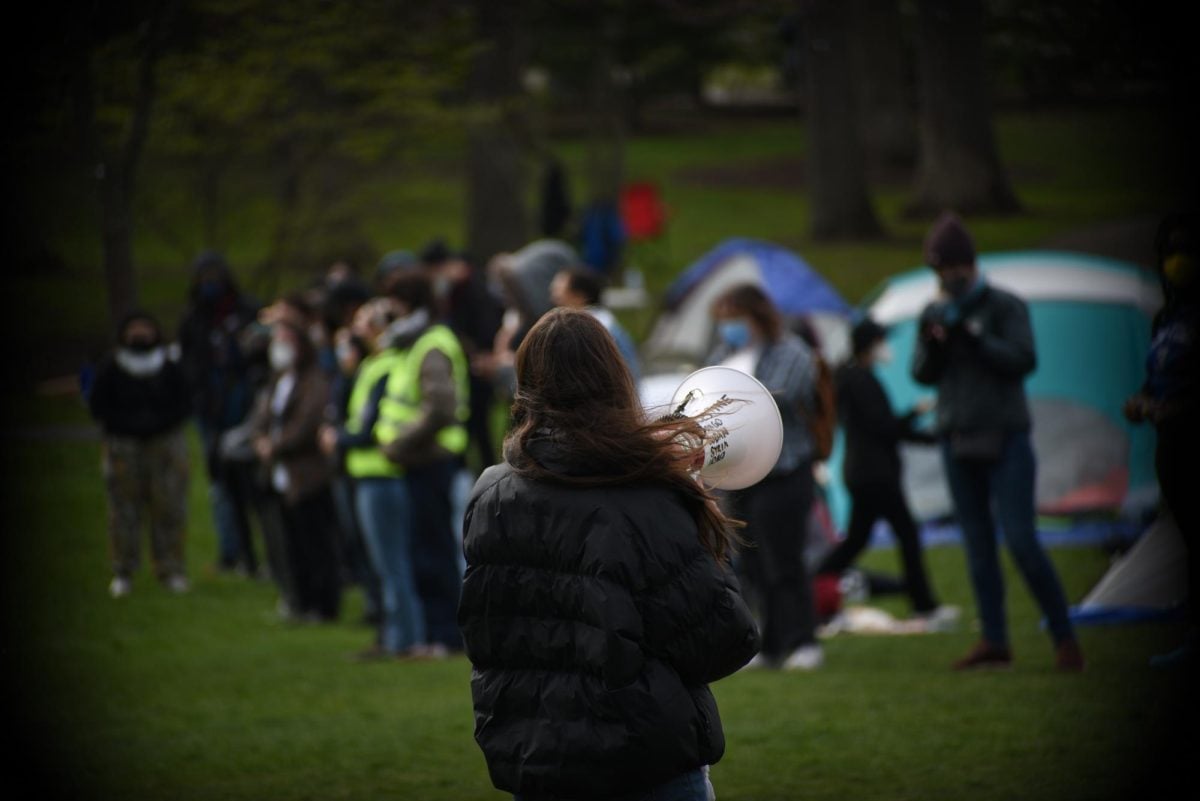 Weinberg Prof. Mark Aparece discovered his love for organic chemistry in college. Now, he’s passing that love on to his students.
Weinberg Prof. Mark Aparece discovered his love for organic chemistry in college. Now, he’s passing that love on to his students.
MARK APARECE: I think if you really want to inspire the next generation of scientists — no matter chemistry, biology, engineering — you really have to make them see how applicable your discipline is.
EDWARD SIMON CRUZ: From The Daily Northwestern, I’m Edward Simon Cruz. This is NU Declassified, a look into how Wildcats thrive and survive at Northwestern.
This quarter, we’ll be highlighting professors from different corners of campus. Today, we’ll be speaking with Weinberg Prof. Mark Aparece, who has taught chemistry at NU since 2022.
Growing up, Aparece spent much of his time playing and composing music. But his plans to study music in college quickly changed.
MARK APARECE: I wasn’t quite talented enough or disciplined enough to sit in a practice room for four hours a day, because that’s what you need to do to make it in classical music.
EDWARD SIMON CRUZ: Aparece became particularly interested in organic chemistry after he took a class on that subject his sophomore year of college. He says he appreciated its consistent, logical rules and patterns.
As a professor, Aparece says he repeats buzzwords, or key phrases associated with those rules and patterns. During Fall Quarter, some of his students tallied the number of times he used each buzzword.
MARK APARECE: The fact that I keep recalling fundamentals and explicitly showing “negative attacks positive,” “make a bond, break a bond” — that not only helps reinforce what they’re learning, right, in that zone of proximal development, but also reinforces their fundamentals.
EDWARD SIMON CRUZ: Weinberg senior Lili Pope says Aparece emphasized the scientific processes behind actual reactions. Through his emphasis on these fundamentals, she says the course, while difficult, remained manageable for her.
LILI POPE: He didn’t want us to just memorize the reactions and what happens during them. He wanted us to understand why and how they happened, and I think, by the end of the course, I did get to that level of understanding, and I actually came to appreciate the material on top of just learning it for the class.
EDWARD SIMON CRUZ: Since his organic chemistry classes target science majors across a wide range of disciplines, Aparece says he highlights how organic chemistry can be relevant within other areas of study.
Weinberg sophomore Maggie Schneider says Aparece highlighted these connections during his lectures this winter.
MAGGIE SCHNEIDER: He talked a lot about biology, about biochemistry, which was really nice because I’m a biology major, and I feel like that was the first exposure to biochem that I had in a very informal way during lecture.
EDWARD SIMON CRUZ: Aparece creates what he calls lecture shells by writing notes on pre-made slides during his classes.
Aparece says he finds value in traditional lectures, describing them as dynamic social events since he and his students gather in the same unique time and place. These lectures also provide ample opportunities for students to ask questions.
MARK APARECE: Every single time it’s different, even though the material itself might be the same. And every time I interact with a student, I say, “Ah, someone raised their hand,” and I can say, “I anticipated that question. Thank you for asking. You’re not the first person to ask that question. You will not be the last.” Other times someone will ask a question I’ve never thought of before.
I like to put people’s questions on my exams, ‘cause if they cared enough to ask, then I care enough to put it on an exam.
EDWARD SIMON CRUZ: Aparece also uses his office hours to break down complicated ideas in smaller group settings. That’s according to Medill junior Jonathan Zhao, who took Aparece’s course in Fall 2022.
JONATHAN ZHAO: He had a whiteboard, so he would draw things for us, just really making sure that everybody really understood — not just explain a question, then the student pretends to understand just to keep things moving along. No, he really wanted us to get it, and he made sure of that.
EDWARD SIMON CRUZ: In addition to providing this support, Aparece encourages his students to teach each other difficult concepts — a practice he followed when he was in college.
Aparece says that repeatedly teaching other people about chemistry helped him refine his own knowledge.
MARK APARECE: By teaching for many, many years, that’s how I was able to hone my pedagogical craft and all these buzzwords that I’ve picked up and I’ve crafted over the years. It’s a long process. It does take time.
EDWARD SIMON CRUZ: More recently, Aparece has begun teaching a class on a new subject for him: green chemistry, which focuses on minimizing the creation and use of hazardous substances.
Aparece says the class gave him a greater appreciation for the environment. He says he is switching to less toxic, more sustainable chemical species in his labs — a change he made because he took on this new class.
MARK APARECE: Being open to new opportunities, being open to learning new things and learning as much as you can is something that could really change your life. And I tell people to never, never squander that opportunity.
EDWARD SIMON CRUZ: From The Daily Northwestern, I’m Edward Simon Cruz. Thanks for listening to another episode of NU Declassified. This episode was reported and produced by me, Edward Simon Cruz. The audio editor of The Daily Northwestern is Carlotta Angiolillo, the digital managing editors are Sonya Dymova and Micah Sandy, and the editor in chief is Jacob Wendler. Make sure to subscribe to The Daily Northwestern’s podcasts on Spotify, Apple Podcasts or SoundCloud to hear more episodes like this.
Email: [email protected]
X: @edwardsimoncruz
RELATED STORIES:
— Chemistry Prof. Stephanie Knezz champions inclusivity in STEM teaching
— Nobel Prize in Chemistry recipient speaks at NU
— Chemistry Prof. Chad Mirkin leads the way in nanotechnology at NU














